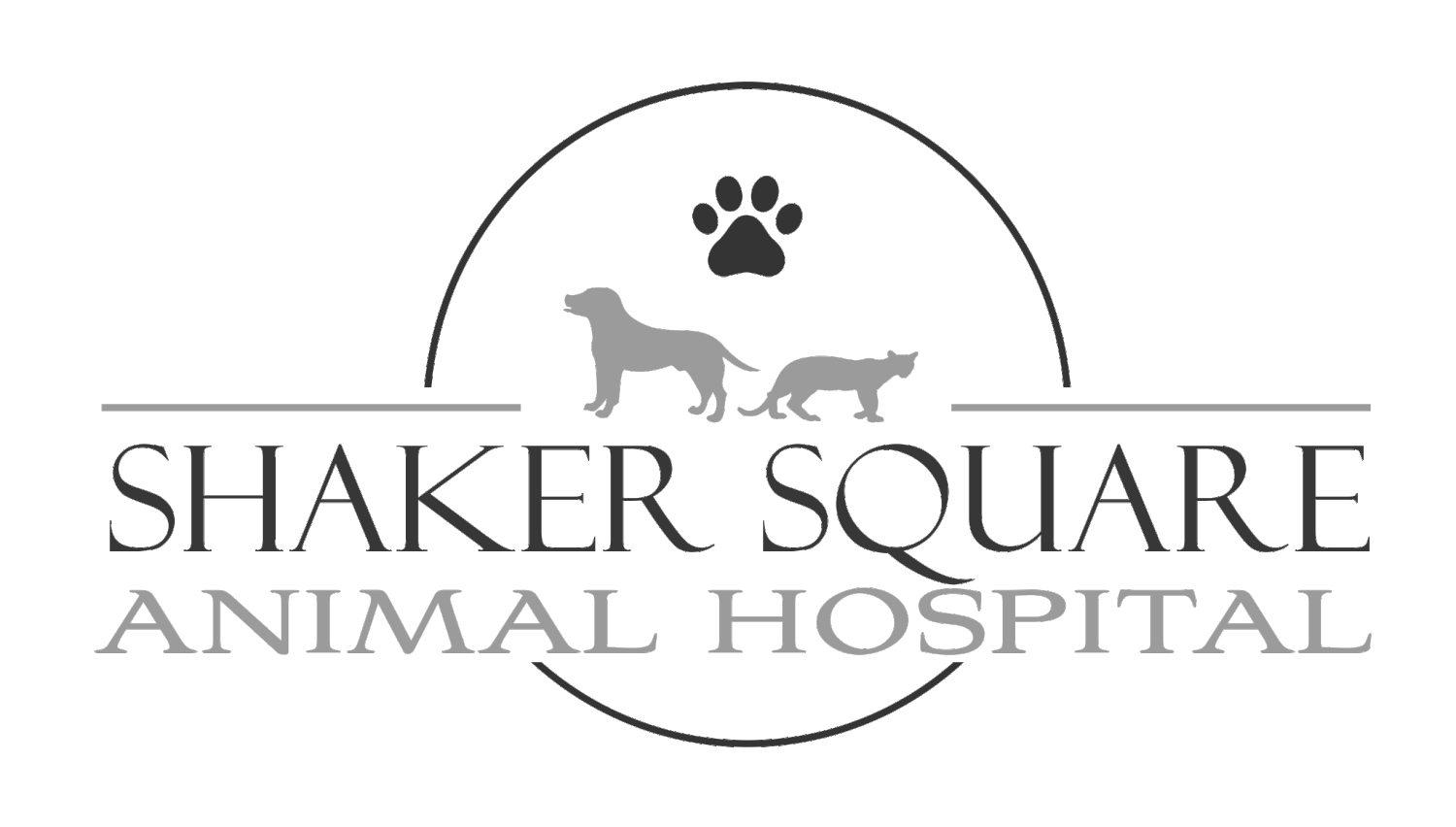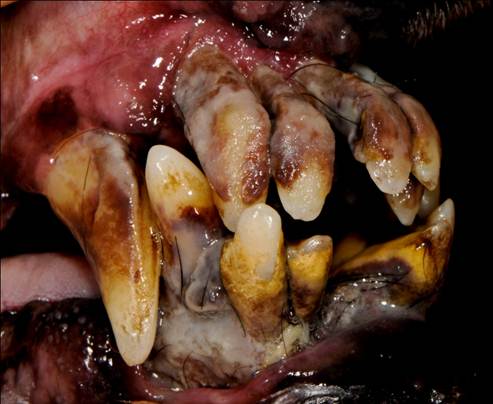Severe periodontal disease
Dental Disease
Dental disease is the most common clinical condition occurring in adult dogs and cat. By three years of age, 70-80% of dogs and cats have some evidence of dental disease. Unfortunately, other than bad breath, there are few signs of the disease process evident to the owner, and professional dental cleaning and periodontal therapy often comes too late to prevent extensive disease or to save teeth. As dental disease progresses, the bacteria in the oral cavity of a pet with dental disease can be released into the circulatory system and travel throughout the body. This can cause damage to cardiac tissue and lead to endocarditis. The bacteria can also invade kidneys, causing damage to the glomerulus membranes, causing them to function improperly and can cause functional changes in the liver of dogs. Studies in humans have linked periodontal disease to a variety of health problems including poor control of diabetes mellitus and increased severity of diabetic complications.
Treatment
If your pet has tartar or large amounts of plaque present, professional dental cleaning is required, which includes a thorough oral examination, scaling and polishing. Dental radiographs are required to correctly diagnose and assist in treatment of patients with extensive disease. Much can be determined by closely evaluating the visible surfaces of your pet’s teeth, and even more by probing around the teeth for signs of gum and bone loss. But, comparable to the situation with icebergs, much more tooth (and information) lay below the surface. And it is only with radiographs that this important additional information can be learned.
For best in practice dental care, dental X-rays are mandatory. Most of the tooth lies below the gingival or gum surface and its health cannot be appreciated until an X-ray is taken and reviewed
Tooth root abscess
Resorbtion lesions
Cortical bone loss
Tooth roots remnants after extraction
Immediately after a professional dental cleaning, the tooth surfaces should be very clean and smooth just like they feel after you get your teeth cleaned, but within hours plaque is already starting to accumulate on those freshly cleaned surfaces so daily brushing is the best way to control plaque and maintain good gingival health.






